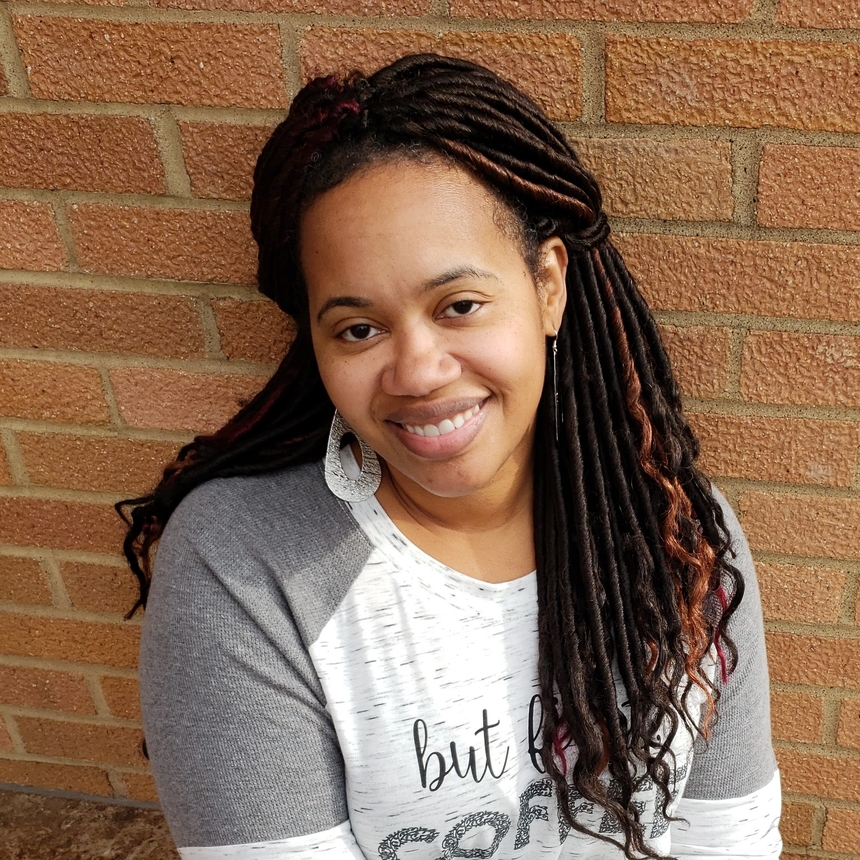5 More Things I Learned in Bootcamp
by Rhia Dixon
Posted on January 31, 2019

I mentioned in a previous post that I took the non-traditional road to becoming a software engineer by attending a coding bootcamp, and that I did manage to learn a few tech-ish things. Well, I also learned quite a few non-tech things during the course of the program.
While I could go on and on about how awesome my program was, how much I loved the challenge, all the languages I learned, and the people who have helped me out in one way or another... I would be remiss to not mention that soft skills...work skills...LIFE skills are also important. I’m pretty positive that learning these things has contributed to my current success, and I’d like to share what I found with you.
procrastination is preventable
The “P-word” has been my arch-nemesis most of my adult life. Procrastination has had me up til the wee hours of the morning cranking out enumerable lines of code to meet assignment deadlines. Procrastination has had me biting my nails trying to brainstorm 5-page essays. Procrastination lures me in with the promise of later...and later...only to vanish at the critical hour, leaving me to find inspiration in the wind. I realized during my bootcamp that procrastination could be prevented simply by planning. Really.
I was introduced to Trello by a classmate during a group project. Trello has changed my life y’all! It’s like having a bulletin board and post-it notes to plan your project. It is so worth it to break down projects into easily measured pieces, and putting things in the “Done” column is extremely satisfying. People can do all kinds of planning with Trello. I’m currently using Trello boards for various projects: goal-setting, house-cleaning, travel planning, and speaking engagements. If you don’t have a planner or an app like Trello already, find a planning tool that works for you and commit to using it daily to add/update tasks. You will see a marked spike in your productivity.
social media presence is important
I’m specifically talking about LinkedIn and Twitter. So, I’ve had a LinkedIn account for a few years, and a Twitter for about 12 months; however, I didn’t really start off using either of them right. My Twitter is a current curating work in progress, and I just got the hang of LinkedIn about a year ago. I mean, I had my resume info out there, and I had 500+ connections...but I didn’t have many endorsements for skills, nor did I have recommendations from co-workers. I also wasn’t interacting with other people in my network! I was just another face on LinkedIn with a plethora of skills and no personality.
My bootcamp offered career services, and my career liaison just happened to be an amazing firecracker of a woman! Amber Vaughan taught me the value of requesting recommendations from people who knew how I worked. She also taught me about engaging with others on posts and getting connected with the right people. If you do not have a LinkedIn account, please get one. It’s free, and it is one of the best networking tools to have. Here are few things you should do if you have LinkedIn and/or Twitter:
- Add an updated profile picture -- people are more apt to connect with people they can see
- Complete the profile/bio section -- this is a glimpse into your personality, your passions, your strengths, and possibly what you’re looking for in terms of a dream opportunity
- Fill in your job experience (LinkedIn) -- speak to what you were able to contribute in each role
- Connect with people -- if possible, personalize your connect request with how you may know the other person, whether it’s from school, work, a conference...personalized messages hold more weight than random connection requests
- Share articles and posts -- share things you find interesting or helpful and interact with posts other people share
network, network, network
Building your network is critical to your success when it comes to finding opportunities. Most of the people at my current job knew at least one person in the company prior to applying for positions. A resume is designed to showcase your knowledge, skills, and abilities. It is not particularly helpful for expressing how great of a teammate you are, or how your passion for volunteering has provided opportunities for leadership growth. While what you know is important, who you know will help you get beyond the “screeners” and to the actual interview.
Your network will be able to recommend you for open positions and vouch for you! Your network is where you will find amazing mentors, opportunities to advance professionally, and interesting volunteer events to support. When networking opportunities arise, take them. Sometimes, networking can be as simple as following up with a connection on LinkedIn, attending a meetup, or engaging in Twitter conversations. Sometimes it takes a little more effort than that. Regardless, it is important. Flipping a quick conversation into to a connection gets easier and more natural as you do it, so get to it!
don’t be afraid to ask questions
One of the most important things I learned during my bootcamp experience was to ask questions. ASK. ALL. THE. QUESTIONS. I paid for my course, I showed up everyday, and I told myself I had too much at stake to not understand a concept. So I asked every question that popped up. Sometimes I asked the teacher, sometimes the TA, and often I asked the Google. 99% of the time, I wasn’t the only one who was perplexed.
This has carried over into my software engineering life. I have a strong desire to be a consistent contributor to my team. I can’t do that if I don’t understand WTF is going on. I’m coding in languages I didn’t learn in class, so those “WTF” moments happen at a certain degree of frequency. I don’t beat myself up over it though. I ask questions for clarification of the goal, understanding of the syntax, and reasoning behind certain design choices. One of the main reasons I was hired for my current role was my willingness to ask questions. Asking questions is a win-win for the asker and the answerer. The asker gets the information they need to be successful, and the answerer often is challenged to think more about why and how something is being done.
try all the things!
I learned that trying out new tech, new solutions, new meetups, and applying for new jobs is only as scary as I make it. I’ve blown away entire repositories due to failed attempts at new tech. I have been to meetups I liked and didn’t like. I have applied to jobs where I’m probably the least qualified applicant.
In every anxiety-inducing moment, asking myself “What’s the worst that could happen?” definitely strengthened my resolve. For instance, applying for jobs, the worst-case scenario is that you don’t get a call or an interview. The best-case? You get the job, or they make up one for you because you’re so awesome. Trying new tech, the worst-case scenario is that it won’t work. Best case? It works amazingly well. Changing how you view the possible outcomes will greatly help your confidence in trying something new. Go for all of the things your heart desires! The worst that could happen is you are told no.
more blog posts
about the blog
about the author
 Meet Rhia -- a pretty awesome, somewhat nerdy, super-friendly software engineer, wife, and mother of one...a lover of puzzles, sci-fi book series, the Skittles in the purple bag, and ALL things Harry Potter.
#TechIsLife #kcwomenintech #BlackTechTwitter
Meet Rhia -- a pretty awesome, somewhat nerdy, super-friendly software engineer, wife, and mother of one...a lover of puzzles, sci-fi book series, the Skittles in the purple bag, and ALL things Harry Potter.
#TechIsLife #kcwomenintech #BlackTechTwitter
Follow @TheFakeRiRi